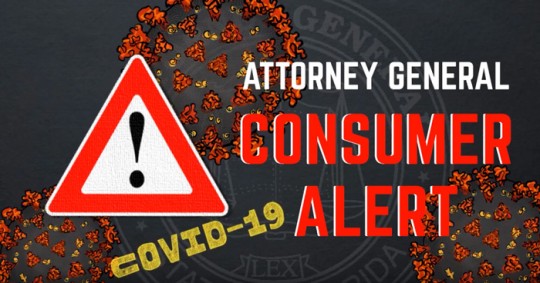Scammers Use COVID-19 Stimulus Package To Target Floridians
April 1, 2020
Attorney General Ashley Moody has issued a consumer alert to warn Floridians about scammers using the new coronavirus stimulus package to target Floridians. The $2 trillion federal stimulus bill includes individual payments, expanded unemployment coverage, student loan changes and much more. News of the historic spending bill is providing ammo for scammers already trying to exploit the COVID-19 pandemic to rip off Floridians.
Moody said, “Anytime the government provides benefits, scammers swarm like sharks in a feeding frenzy, trying to steal payments before they can be distributed. Sadly, even before the coronavirus stimulus package passed, scammers began sending text messages to people claiming they could make a claim by clicking a link that most likely contained malware. Be skeptical of any unsolicited messages from strangers asking you to click links or provide personal information to receive benefits, and educate yourself about the economic rescue package now, to avoid falling victim to these and other new fraud tactics.”
Individuals earning $75,000 or less and married couples earning $150,000 or less are eligible for a one-time payment of $1,200 per person—plus $500 for every qualifying child 16 or younger. People earning less than $198,000 will receive a lower payment.
Tax filers who already provided banking information to the Internal Revenue Service will receive a direct deposit in the coming weeks, and DO NOT NEED to take action. The IRS will mail notices to beneficiaries within a few weeks after payments are made. Anyone who receives a notice, but did not receive a payment, should contact the IRS immediately. The IRS will not initiate contact with tax filers by email, text messages or social media to request personal or financial information. The IRS emphasizes on its website that no sign-up is needed to receive payment.
- To guard against stimulus payment scams, NEVER:
- Respond to text messages, emails or ads directing you to click on a link;
- Provide any personal or financial information in response to an unsolicited message;
- Trust Caller ID displays claiming a call is from the IRS—as spoofing technology allows scammers to change phone displays to impersonate government agencies; and
- Make any advance payment in order to secure or expedite access to a benefit.
- The above tips also apply to anyone seeking unemployment benefits under the new legislation. American workers are being hit especially hard by the COVID-19 pandemic with millions already losing jobs. Under the new economic bill, eligible workers will receive an extra $600 per week on top of current state benefits.
To receive the expanded unemployment payments, workers should file directly with the state and not respond to solicitations seeking personal information. To file for Reemployment Assistance Program Benefits in Florida, call (877) 846-8770 or visit FloridaJobs.org.
Anyone who encounters a coronavirus stimulus package scam or any other types of COVID-19 fraud, should contact the Florida Attorney General’s Office at 1(866) 9NO-SCAM or MyFloridaLegal.com.




Comments